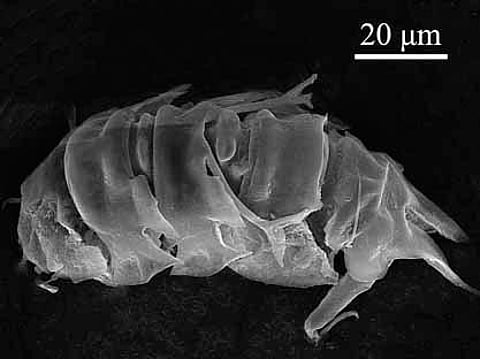

KOCHI: A team of researchers from the Department of Marine Biology, Microbiology and Biochemistry, School of Marine Sciences, Cochin University of Science and Technology (Cusat), has found a novel species of marine tardigrade, which has been named Stygarctus Keralensis. Tardigrades are eight-legged segmented micro-animals.
The discovery is an outcome of the ongoing National Centre for Earth Science Studies (NCESS), which looks into the ecology and diversity of the submarine ground water habitats of Kerala. “Earlier, there had been few unauthenticated reports of marine tardigrade here by the Zoological Survey of India. However, the Stygarctus Keralensis is the first taxonomically described marine tardigrade from the Indian waters. The study has been published in Zootaxa, a scientific mega journal for animal taxonomists. This is also the first encounter of marine tardigrade from the west coast of India,” said Prof S Bijoy Nandan, who led the study. In addition to Vishnudattan N K and Jayachandran P R, the team included J G Hansen -- a researcher at the University of Copenhagen.
Tardigrades, commonly known as water bears or moss piglets, are tough organisms found almost every kind of topography on earth including mountaintops and deep sea. It has survived five mass extinctions. Tardigrades are related to insects and are ‘lesser known taxa’ of invertebrates, said Bijoy. The organism has adapted to environmental stress by undergoing a process known as cryptobiosis, which means their metabolic activities come to a reversible standstill in what can be called a death-like state. They have extraordinary survival instincts in situations that can be fatal to almost all other organisms. Certain tardigrade species are able to survive in extreme temperature, pressure, radiation, and dehydration. They can also survive well in the face of microgravity and cosmic radiation.
The discovery assumes significance considering the fact that a marine tardigrade species has been recorded from Indian waters after half a century. “Though many studies on tardigrades are being conducted worldwide, this phylum remains mostly unexplored in India. Here, these studies are still in their nascent stage,” said Bijoy.